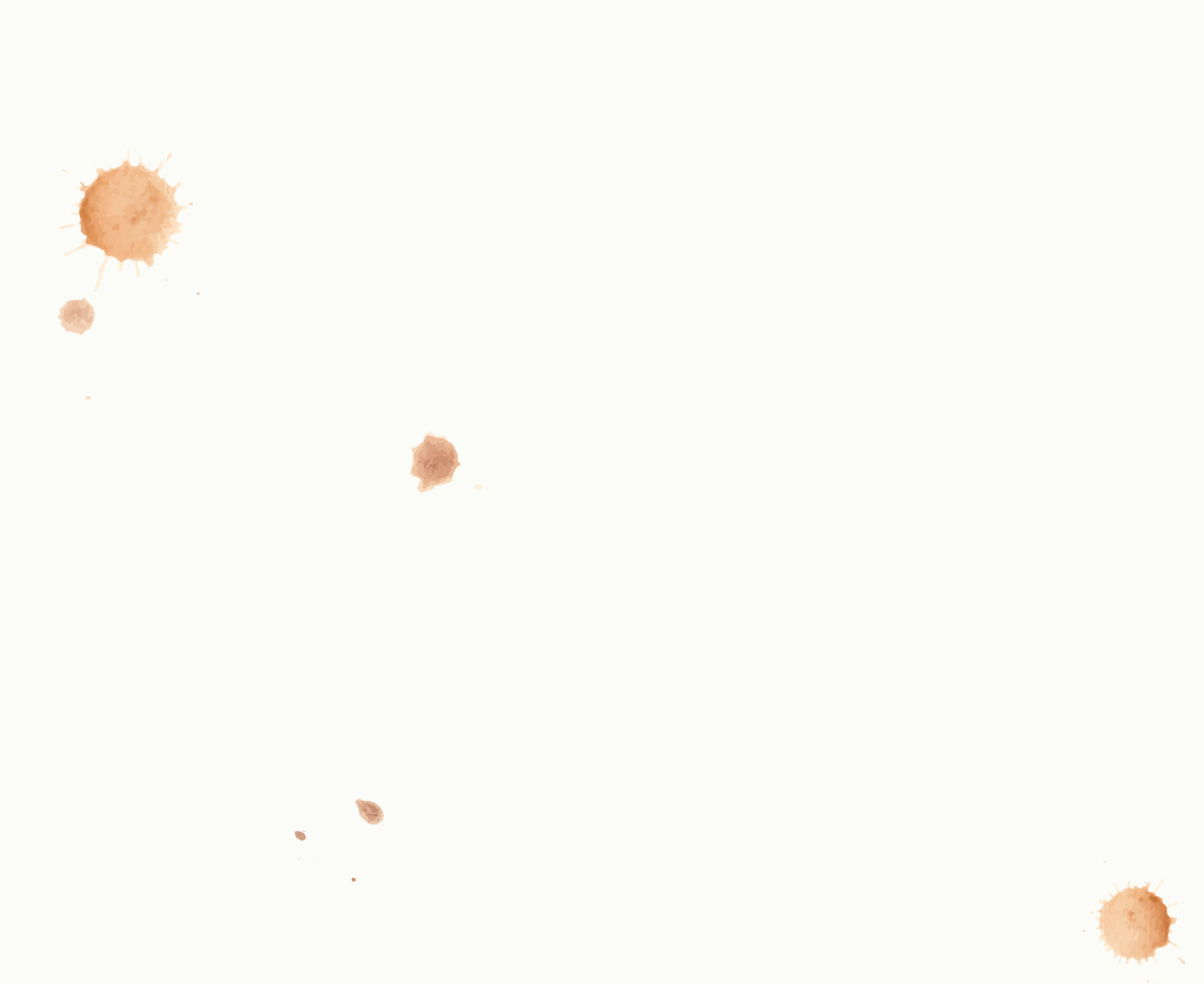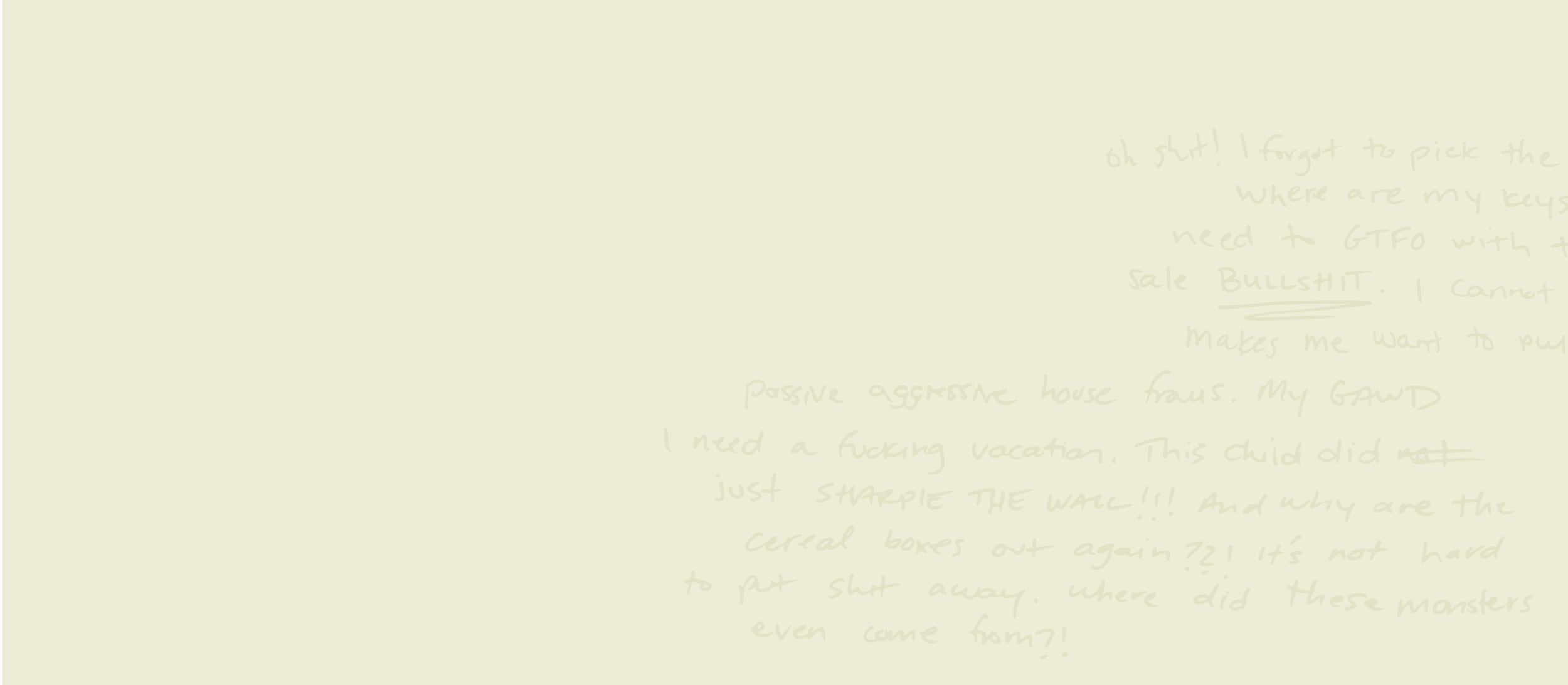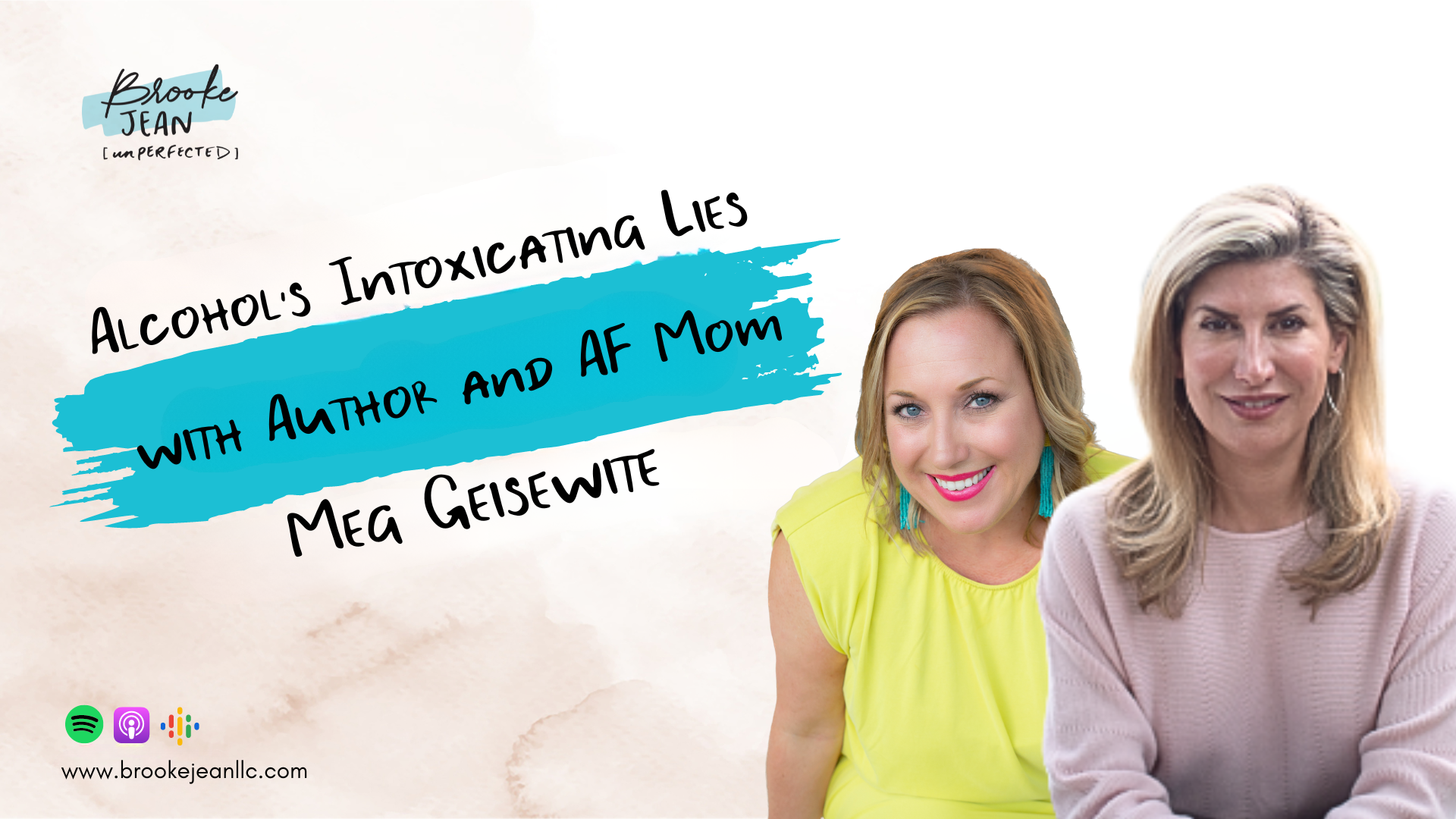
EPISODE 13
Alcohol’s Intoxicating Lies
with Author and Alcohol-Free Mom
Meg Geisewite
I am so thrilled, honored, and excited because today we have a fabulous guest on the podcast.
Introducing author of Intoxicating Lies: One Woman's Journey to Freedom from Gray Area Drinking, and overall trailblazer in the alcohol-free space –
Meg Geisewite!!
Meg is an ordinary mom who found herself trapped in the mommy wine culture. She began her sober-curious journey in November 2019 where she completed all three of the Sober Sis programs: The 21-day Reset, Alcohol-Free Lifestyle Course, and The Quest, in which she currently participates. Meg is dedicated to helping other moms who are feeling trapped in their relationship with drinking and she continues to flip the script of silence on the alcohol-obsessed society we find ourselves in.
We wanted to tackle one of the juiciest topics in motherhood, a topic that is near and dear to my own heart, and the exact topic that inspired Meg’s journey to alcohol-free living: mommy wine culture.
Let’s name it for what it is – mommy wine culture is the narrative that we deserve alcohol and need it in order to rest.
We are told that it’s okay for us to drink at the end of a long and grueling day, and we wear shirts that say “Mama needs wine.” We believe that it will help the anxiety and depression that stems from the pressure that we feel as mothers.
Meg notes that these narratives gradually got her to the space of gray area drinking, and she ultimately found herself feeling stuck in the unhealthy patterns. So what is the “gray area drinking,” anyway?
Gray area drinking – as mentioned in medical literature – is the space between “take it or leave it” drinking (those who can have one glass of champagne to toast and be done), and “end-stage” drinking (those who are in need of a medical detox to quit). The hue of gray can differ, and it’s the in-between space that is often normalized.
meg acknowledged that her drinking wasn’t all it was cracked up to be, started blaming herself, and found herself experiencing a world of grief, shame and regret.
She – along with the rest of us experiencing mommy wine culture – was sold the intoxicating lie that drinking is how we should handle stress and parenting. But why doesn’t it make us feel better? Why do we actually end up feeling worse when we drink?? Meg noted that she had had enough.
In order for her to switch the narrative around drinking, Meg spent a lot of time looking inward, asking herself questions, reprogramming her old belief systems, and healing. She would ask herself simple questions:
What is it providing for you?
Is it really rewarding you?
Who are you without it?
Why is it so hard to rest?
What is real rest?
This area of self-exploration can be a scary one, because it forces us to look directly at our shadow parts. The parts of ourselves that we often try to avoid. The people-pleasing, the perfectionism, the chronic-achieving, and so on. So how do you move through this tumultuous space without going back to the habitual drinking?
First-things-first: Meg notes that there are no bad parts of ourselves. For her, the people-pleasing, perfectionism and chronic-achieving are coping skills that have helped her survive and thrive, and she visualizes them as little army people that she thanks and lets go. She now knows that she is good enough after retraining her brain, and she doesn’t run from these parts of herself anymore.
the deeper the pain, the more intensely these coping skills will show up, and the more consistently we have to be with releasing them and choosing differently.
After embracing these real sides of yourself, you can then utilize tools to help you through the mess. Meg shares her top tips that can help you too:
Recognize your energetic and emotional bandwidth, and respond accordingly. If you find yourself running on empty, try new skills like meditation, going for walk, looking out the window, etc., all while knowing it is okay to be energetically checked out.
Ask yourself more questions. How can I honor my mind, body and spirit to help me show up?
Remind yourself that while alcohol previously worked to numb the bad, it also numbed the good.
Give yourself more time and grace to explore alcohol-free living to avoid instant gratification. It takes 2 weeks for alcohol to actually leave your system, so try to shoot for longer. Go beyond the standard dry month.
Pour into curiosity, even in messy ways. Again – continue to ask yourself questions.
Don’t give up and allow for self-compassion. We always think that the journey to health and wellness (at any capacity) is a straight shot upward, but it absolutely isn’t. If you side-step and fall back into an old habit, don’t give up and give yourself grace (knowing damn well it is part of the process).
Take the moments of side steps and look inward at what you can learn from them. Why did I do that last night? Did it give me what I thought I was missing? Get into the intoxicating lies about what you believe about it.
Notice the hidden benefits of breaking up with drinking. Things like time. When we add up the time that relates to drinking and decision-fatigue we see that alcohol is really a giant time-suck.
Tune into beauty and magic in the day that you haven’t noticed before. Whatever it is that speaks to the heart.
Seek help and support from a therapist or life coach for the extra TLC and accountability. The process of changing your relationship with alcohol is a process of unbecoming, and we move through the deepest parts of ourselves. Don’t be afraid to get help.
Get comfortable with the uncomfortable. Embrace it.
If you find yourself in the space of gray area drinking and wanting something more for yourself, it’s time to rebuild yourself from the inside out.
When we remove alcohol we start to sense a feeling of confidence, and when we stop hiding and we actually heal, our potential sky-rockets.
to connect with meg:
Website: Meg Geisewite
Instagram: @intoxicatingliesbook
Facebook: Intoxicating Lies Book
Take care of yourselves and therefore each other!
xo, brooke jean
-
•Brooke welcomes Meg Geisewite!
•Meg’s journey to sobriety and her involvement in the sobriety community
•The societal pressure to be perfect and how it leads to harmful behaviors
•The importance of rest and self-discovery
-
• The concept of gray area drinking
• Emphasizing the need for education about what alcohol actually does to the mind, body, and spirit
• The shame and guilt that often accompany gray-area thinking
• Exploring your relationship with alcohol and how to question whether it is truly providing the benefits you believe it is
-
• The importance of community, programs, and tools for women
• The need to rewire the brain to let go of coping mechanisms and choose differently
• Energetic emotional bandwidth needs to be honored for better productivity
• Self-compassion is key on this journey and side steps are normal
-
• Meg shares her book, Intoxicating Lies, as it emphasizes finding joy in everyday life.

CONTINUING THE CONVERSATION
I hope that you’ll join me in this movement, and that you can authentically reconnect with who you really are. That’s where your essence and your gems really lie.
Follow along on Instagram
@brookejeanunperfected to see how ridiculous I am IRL.
Join my private Facebook group Mommy’s Mental Health Matters and let’s continue the conversation, uplift one another, and build the life that we have always dreamed of. I would love to have you!
To support
subscribe, rate and review the unPERFECTED pod, share the episode on social media, and tag me at @brookejeanunperfected.
Thanks so much for listening!


